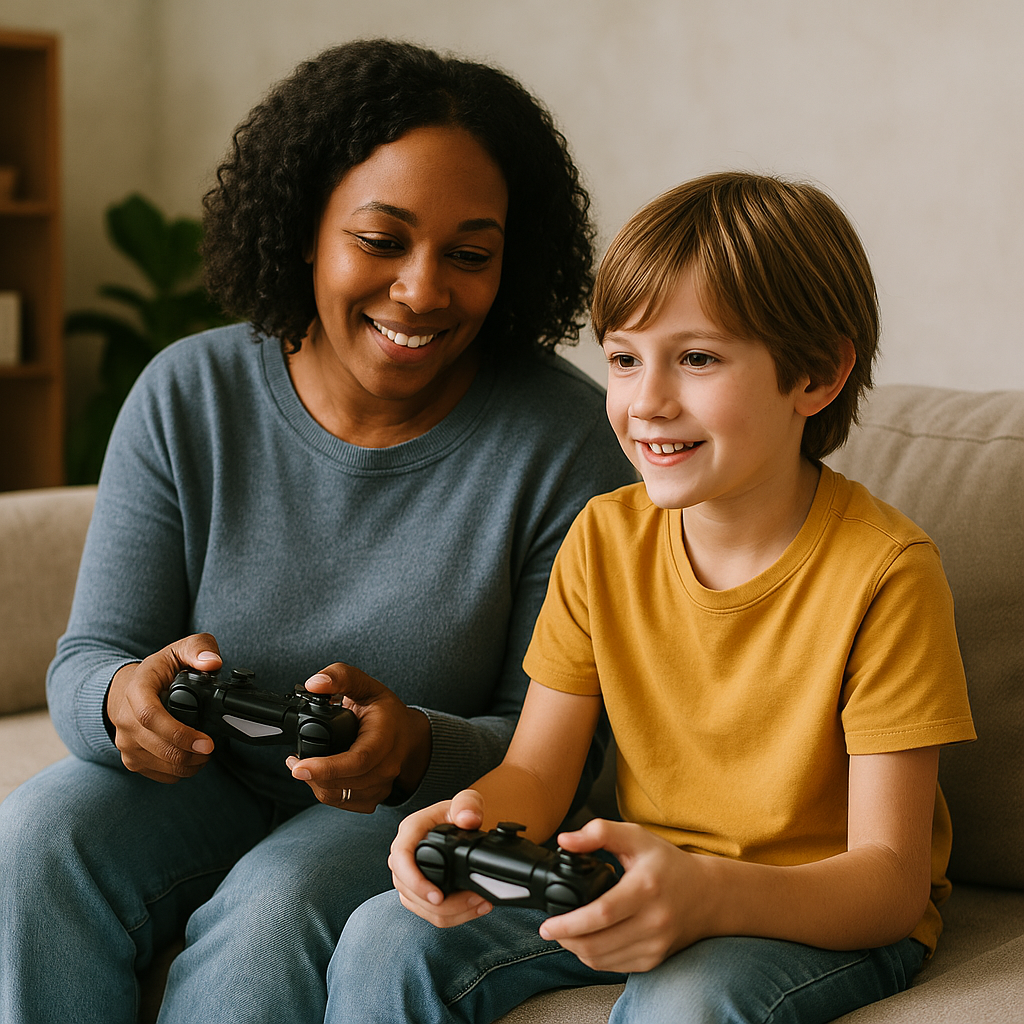It’s easy to find headlines that suggest video games are damaging kids’ brains. But if you look deeper, you’ll discover the story isn’t nearly so simple. As a mental health professional, I want to offer a more balanced view — one grounded in evidence and delivered in a friendly, relatable tone.
1. The Myth of the “Ruined Brain”
Most alarmist claims about gaming rely on correlation—not causation. Studies show that children who spend time gaming may also experience attention or mood issues—but that doesn’t mean gaming caused them. In fact, kids with strong impulse control might simply enjoy challenging themselves with games. It’s a classic case of “correlation ≠ causation.”
2. Cognitive & Emotional Benefits of Gaming
✅ Improved Impulse Control & Memory
A 2022 JAMA Network Open study looked at just over 2,000 kids ages 9–10. Those who gamed three or more hours a day showed better impulse control and working memory—and their brain scans even displayed more activity in areas tied to attention and memory processing.
✅ Sharp Visual‑Spatial & Attention Skills
Meta-analyses of action games call out clear improvements: kids become faster and more accurate at picking up visual information, reasoning spatially, and zoning in on details—even when distractions are present.
✅ Development of Soft Skills
Believe it or not, casual games like Tetris or Pac-Man help build persistence, spatial reasoning, and risk-taking skills. That’s backed by research showing measurable gains from gaming in everyday life.
3. When Video Games Can Cause Problems
⚠️ Sleep Disruptions
Interactive gaming before bedtime can delay sleep by about 30 minutes—and each extra hour spent gaming daily pushes bedtime later, too.
⚠️ Risk of Gaming Disorder
Around 1–3% of gamers may develop what’s described as gaming disorder—characterized by mood issues, social withdrawal, anxiety, depression, and sleep problems. But this is relatively rare. arxiv.org
4. How to Foster a Balanced Approach
-
Watch for signs of digital distress—like irritability, withdrawal, sleep issues—and talk openly with your child about screen use.
-
Model healthy habits: establish device-free zones, stick to bedtime routines, and show how you manage your own screen time. It’s more effective than strict bans. parents.com
5. Social & Educational Value of Games
Many games encourage teamwork, communication, and social strategy—valuable skills in real life. Specially-designed educational games can also sharpen cognitive abilities like problem-solving, math, and decision-making.
6. A Therapeutic Tool: Games with a Purpose
You’ve probably heard of EndeavorRx—the first FDA-approved video game designed to treat children with ADHD.
-
It’s backed by five clinical trials with over 600 children, and shown to improve attention by about 36% on objective measures like TOVA.
-
It’s recommended as part of a multimodal ADHD treatment plan—not a replacement for medication or therapy.
7. When to Consider Therapist Support
If gaming starts masking deeper patterns—like anxiety, depressive symptoms, isolation, or mood swings—it may be time for support. A therapist can help you and your child explore healthy limits, emotional regulation, and what’s really beneath the behavior.
Bottom Line
Video games don’t ruin brains—they can reshape them. With thoughtful limits, shared curiosity, and occasional therapeutic use, gaming can become a powerful tool for growth—not a deterrent.
📞 Want Support?
Noticing signs of stress, sleep disruption, emotional outbursts—or just feeling unsure about your child’s relationship with screens? You’re not alone.
👉 Learn more about the therapeutic value of video games
We’re here to help you find strategies that fit your child—and your life.



